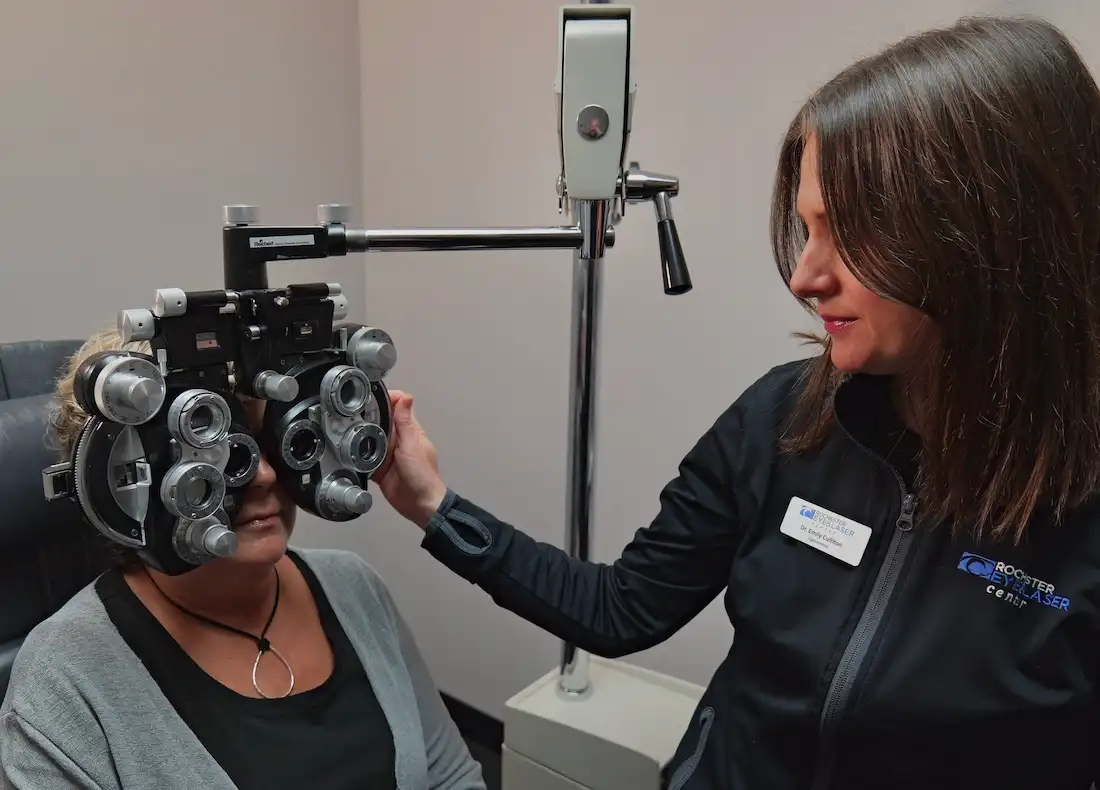Does Medicare Cover LASIK Eye Surgery?
It’s never too late to take steps to correct your vision, and many older adults on Medicare may be wondering if and how LASIK eye surgery is covered...
2 min read
 Danielle Kunkle
:
Aug 9, 2018 1:05:37 PM
Danielle Kunkle
:
Aug 9, 2018 1:05:37 PM

 Most people are surprised when they turn 65 to find out that Medicare has fairly limited benefits for vision services. After all, our vision often worsens as we age, so we generally need more vision care as an older adult.
Most people are surprised when they turn 65 to find out that Medicare has fairly limited benefits for vision services. After all, our vision often worsens as we age, so we generally need more vision care as an older adult.
While Medicare doesn’t cover routine vision services, it does offer benefits for a variety of injuries or illnesses related to optic health.
Here’s what you can expect for vision coverage once you enroll in Medicare.
Medicare has two parts. Part A provides hospital coverage and Part B provides outpatient coverage. In most cases, Medicare will provide coverage for any inpatient or outpatient service that is deemed medically necessary by your doctor. In other words, if you’ve experienced an injury to your eye or you have developed a health condition related to vision, Medicare will generally cover treatment.
Your Part B outpatient coverage will pay for certain treatments of health conditions such as glaucoma or cataracts.
For example, if your Medicare doctor diagnoses cataracts, Medicare will pay for cataract surgery. Medicare covers the physician’s services in removing the cataract from your eye and implanting a basic lens. Your follow-up care after surgery is covered as well.
Part B will also pay for a set of prescription eyeglasses or contact lenses after your cataract surgery. This is an important benefit because Medicare does not otherwise cover eyeglasses. Glasses after a cataract surgery are an exception to the rule. Keep in mind that Medicare only covers the basic lenses, so if you upgrade your lenses or frames, you will likely pay for the difference in cost.
It’s important to also note that Medicare’s cataract surgery coverage is for intraocular lens implants (IOL). These are small clear disks that will help your eyes to focus.
Medicare generally does not cover advanced lens implant surgeries, such as multifocal lenses. If you opt for an advanced surgery, be prepared that you may cover some or all of the costs on your own. Medicare also does not cover Lasik surgery.
Your Medicare Part B outpatient services will also cover annual preventive screenings for individuals considered at high risk of glaucoma. If you have a family history of glaucoma or you have diabetes, you will qualify for this free screening. African-American beneficiaries age 50 and over and Hispanic-Americans age 65 and over also qualify for the glaucoma screening.
While Medicare Part B does cover not routine eye exams for all beneficiaries, it will pay for an annual vision exam for diabetics so that their physician can check for diabetic retinopathy.
How to Get Help with Vision Coverage
While Medicare Part B pays for 80% of covered services, beneficiaries are responsible for paying their own deductibles and the other 20%. This is called your coinsurance.
Individuals who have enrolled in a Medigap plan will find that their supplemental coverage pays for some or all of that 20%, depending on which Medigap plan you chose. People with Medigap coverage can get their care from any eye doctor that accepts Medicare.
Some Medicare beneficiaries choose to get their Medicare benefits through a private Medicare Advantage plan rather than through Original Medicare. People with Medicare Advantage plans must generally get their care from providers in the network. Your cost-sharing for services like cataract surgery will depend on what the plan charges. Consult your Evidence of Coverage to find out what your cost-sharing responsibility is before you schedule any visit or procedure.
We should also mention that some Medicare Advantage plans include ancillary benefits that Original Medicare and Medigap plans do not offer. This might include vision exams or a credit toward the cost of lenses and frames. It varies by plan. Typically, the plan will have a network of providers, and you must consult a provider who is in the network to take advantage of these ancillary benefits.

It’s never too late to take steps to correct your vision, and many older adults on Medicare may be wondering if and how LASIK eye surgery is covered...

Discovering the Advantages of LASIK for Those 50 and Older As we progress through the aging process, our visual requirements often change, making...

Laser-Assisted Cataract Surgery has Revolutionized the Procedure Traditional cataract surgery and laser-assisted cataract surgery can both be...